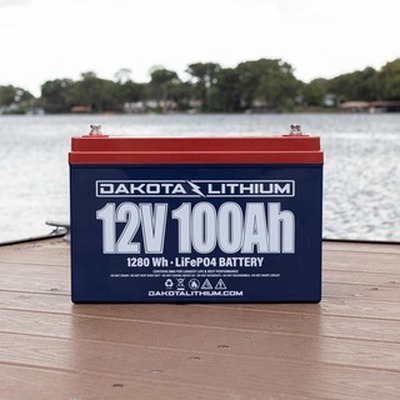At What Voltage Is a 12-Volt Lithium Battery Considered Dead?
Body
Lithium batteries have become increasingly popular in various applications due to their high energy density, lightweight nature, and long lifespan. However, it's essential to understand the voltage levels at which a 12-volt lifepo4 battery is considered dead or depleted. In this article, we will explore the voltage range of a 12-volt lithium battery and the factors that affect its performance and lifespan.
Understanding Lithium Batteries
Before we delve into the specific voltage levels, let's first gain a basic understanding of lithium batteries. Lithium batteries are rechargeable power sources that utilize lithium ions to store and release electrical energy. They come in various voltages, with 12-volt batteries commonly used in various applications such as RVs, boats, golf carts, and solar battery bank systems.
Structure of a Lithium Battery
A 12-volt lithium battery typically consists of multiple lithium-ion cells connected in series, resulting in a combined voltage of 12 volts. Each cell has a nominal voltage of around 3.6 to 3.7 volts.
Factors Affecting Lithium Battery Voltage
Several factors can influence the voltage levels of a 12-volt lithium battery throughout its lifespan. These factors include:
State of Charge (SOC): The Voltage of a lithium battery varies depending on its state of charge. A fully charged 12-volt lithium battery typically reads around 12.6 to 13.2 volts. As the battery discharges, the Voltage gradually decreases.
Load and Current Draw: When a load is connected to a lithium battery, such as powering equipment or devices, the battery's Voltage will drop. The magnitude of the voltage drop depends on the load's power requirements and the battery's capacity to deliver current.
Temperature: Extreme temperatures can affect the voltage levels of lithium batteries. Cold temperatures, in particular, may lead to a temporary decrease in Voltage. It is important to note that the Voltage may recover once the battery warms up.
Age and Battery Health: The performance of lithium batteries deteriorates over time. As a lithium battery ages, it may experience a decrease in capacity and overall voltage levels, indicating a reduced ability to hold and deliver charge.
Voltage Levels of a 12-Volt Lithium Battery
Now let's explore the voltage levels at which a 12-volt lithium battery is considered dead or depleted. It's important to note that different manufacturers may vary slightly in their specified voltage ranges. However, the following values provide a general understanding:
Fully Charged State: A fully charged 12-volt lithium battery typically reads around 12.6 to 13.2 volts when measured at rest without any load connected.
Usable Voltage Range: The usable voltage range for most 12-volt lithium batteries is between 12.0 and 10.5 volts. Once the battery voltage drops below 10.5 volts, it is considered significantly discharged and nearing depletion.
Dead Voltage Level: A 12-volt lithium rv batteriesy is generally considered dead or fully depleted when its Voltage drops below 10.0 volts. The battery has minimal usable capacity remaining and should be recharged as soon as possible.
Factors Influencing Battery Life and Voltage
To optimize the performance and longevity of a 12-volt lithium battery, consider the following factors:
Discharge Depth: Frequent deep discharges below 20% state of charge can accelerate the wear and reduce the lifespan of a lithium battery. Avoiding deep discharges whenever possible and using a battery management system to prevent excessive discharge is advisable.
Charging Practices: Following appropriate charging practices is crucial for maintaining lithium batteries' health and voltage levels. Avoid overcharging, which can lead to increased stress on the battery cells. To ensure a safe and efficient charging process, utilize a compatible lithium battery charger, such as a lithium RV or a lithium battery charger
Temperature Management: Extreme temperatures, both high and low, can impact lithium batteries' performance and voltage levels. It is recommended to store and operate lithium batteries within the manufacturer's specified temperature range to maximize their lifespan.
Conclusion
Knowing the voltage levels at which a 12-volt lithium battery is considered dead or depleted is valuable for monitoring battery health and preventing unexpected power failures. While the usable voltage range for most 12-volt lithium batteries is between 12.0 and 10.5 volts, it's crucial to consider factors such as load, temperature, and battery age when assessing battery voltage. By understanding these voltage levels and implementing best practices for usage, charging, and maintenance, you can optimize the performance and lifespan of your 12-volt lithium battery.






Comments